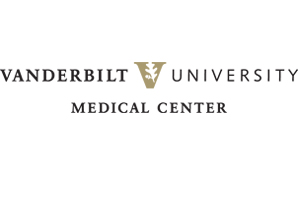Five days of antibiotics is superior to 10 days for children with community-acquired pneumonia who are not hospitalized, according to a study published in JAMA Pediatrics.
Community-acquired pneumonia (CAP) is a common and serious infection that leads to 1.5 million doctor visits in the U.S. each year. Doctors typically treat CAP with a 10-day course of antibiotics, but the standard treatment could have negative effects from the antibiotics themselves or harm caused by unnecessary antibiotic use.
The trial, led by Vanderbilt University Medical Center, was run in collaboration with the NIAID-funded Antibacterial Resistance Leadership Group, and patients were enrolled at eight U.S. medical centers, all part of NIAID's Vaccine and Treatment Evaluation Units. It sought to determine if a shorter antibiotic treatment strategy would work better than the typical 10-day strategy to treat children under age 6 with CAP.
"It's critical that we minimize the use of unnecessary antibiotics, both to eliminate the risk of antibiotic side effects and to slow the progression of antimicrobial resistance, a global public health threat," said first author Derek Williams, MD, chief, Division of Pediatric Hospital Medicine at Monroe Carell Jr. Children's Hospital at Vanderbilt.
"Sometimes this means not using antibiotics at all. In other instances, when antibiotics are required, this means choosing the right antibiotic, at the right dose, and only for as long as necessary to effectively treat the infection," he said.
Previous studies have shown antibiotic treatment shorter than 10 days can work well for pneumonia, but the studies did not look at all the possible negative effects from the antibiotics or the possible harm of unnecessary antibiotic use.
"SCOUT-CAP is the first clinical trial to use this particular innovative trial design that takes into account both the response to therapy and the potential side effects of that therapy," said corresponding author Buddy Creech, MD, director of the Vanderbilt Vaccine Research Program and principal investigator of the Vaccine and Treatment Evaluation Units.
"Using this approach in future trials may allow us to optimize therapy for a number of infectious diseases in children and adults," he said.
Researchers studied 380 children age 6 months to less than 6 years who were diagnosed with CAP and prescribed outpatient antibiotic treatment. In the randomized trial, a five-day course of antibiotics resulted in a similar response to the 10-day strategy. Since the likelihood of treatment success and side effect profiles were similar between the groups, the investigators concluded that short course therapy was superior to standard therapy. In addition, the shorter course strategy of antibiotics led to a significantly lower abundance of antibiotic resistance genes in that group.
"These data may be immediately applied by clinicians, and we hope this study will help shift the paradigm for childhood pneumonia toward more judicious treatment approaches, resulting in care that is safer and more effective," Williams said.
Creech said future research is focused on identifying children with pneumonia who may not require antibiotic therapy at all, since the majority of pediatric pneumonia in the U.S. may be due to viral infections, which do not respond to antibiotics.
This project was funded, in part, with funds from the National Institute of Allergy and Infectious Diseases (NIAID) Vaccine Treatment and Evaluation Unit at Vanderbilt University Medical Center (HHSN272201300023I).







